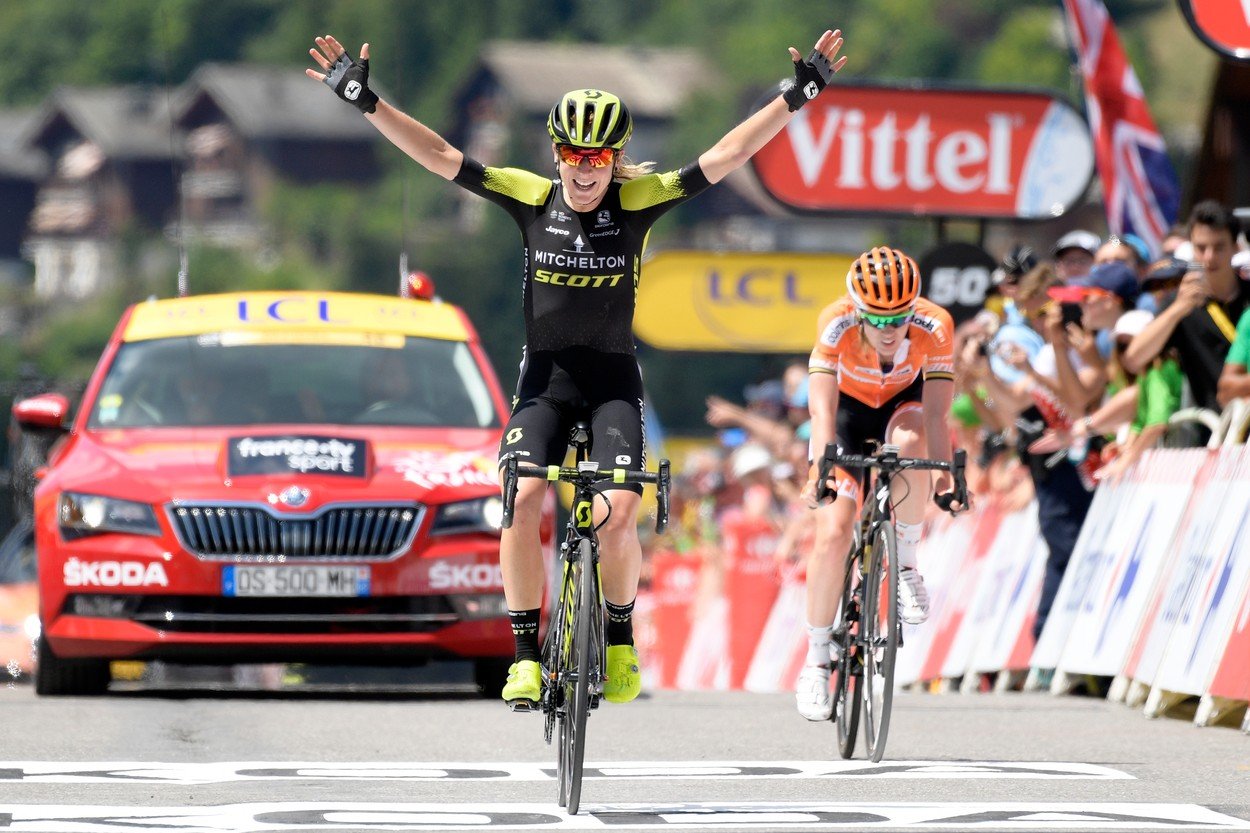Bike shops and cycling events have a bit of a reputation for being an intimidating place for beginners who have not yet acquired the ‘unspoken rules’ and are trying to learn by doing. When you throw in the sometimes-misguided assumptions about women and sports, the results can be pretty toxic. Clearly, this is not at all the case at every bike shop, event or in most cycling communities, nor is this the dynamic which dictates all interactions between men and women about cycling. The cycling community is more inclusive and gender-positive than it has ever been before but mansplaining does still happen and it causes real harm.
In 2016, Martin A. Bentancourt tried to advise Olympic cyclist Annemiek van Vleuten on how she could’ve avoided three spine fractures and a severe concussion from a crash if she knew “the first rule of bicycling.” Although many supporters, both male and female, found this claim outrageous and supported van Vleuten, it also points to the larger assumptions too many people have about women and what they are capable of athletically.

Rather than having a conversation on equal ground, en who mansplain go into a situation assuming that someone doesn’t know what they are talking about due to their gender. More than just annoying, mansplaining has a detrimental effect on individuals and the world of sports at large. While this remains an issue within the cycling community, here are a few reasons why men should consider asking for permission before they advise women on how to ride, fix, buy, or take care of their bikes.
Good intentions don’t stop harm from being done
It’s often the case that men who mansplain sports seem to have good intentions. Maybe they think explaining a certain technique or offering up free advice will help a fellow cyclist improve or excel. It is also true that they may not consciously single out women for their lectures. Unfortunately, having good intentions at heart doesn’t stop real harm from being done. In the world of sports, an environment already riddled with problems of sexism, an unprompted remark can be shattering. Annette P. recalls a time she had a man try to explain to her how to cycle up a hill, while she was cycling up a hill. ‘I felt frustrated and demotivated,’ she recalls. All the good intentions in the world don’t make a poorly timed and delivered comment acceptable. If someone isn’t clearly asking for help or advice, it is probably best to keep quiet.
Mansplaining stops women from succeeding
Many attempts have been made to justify mansplaining under the guise of what can more aptly be called benevolent sexism. This is essentially the argument that men are there to take care of women. Although there is no doubt that people of all genders should take care of and look out for another, the added emphasis on protecting women creates a dynamic of perceived incompetence. Sally F. explains her frustration when encountering false assumptions about the kind of bike or gear she must be looking for. ‘I’ve had to deal with a lot of dumbed-down explaining of things I already know about types of bike, what they are used for, tyres, shoes etc. I then feel awkward and uncomfortable asking the questions I would really like answers to—which is the saddle I should be trying? Do I actually need a female-specific bike? Can I change the gear ratios on this bike?’ By creating a culture of exclusion, women are not empowered to pursue their sport in the same way men are. It should never be assumed that any cyclist does or does not have a certain level of knowledge, nor should anyone’s physical ability to be estimated based on their gender.

Mansplaining (ironically) limits access to knowledge
Rachael P. explains, ‘I have recently realised that I like cycling more than I thought I did but in order for me to enjoy it more I need a better bike. I feel completely out of my depth because every bike shop I go into the staff either isn’t that helpful or they make me feel like an idiot.’ When women are passively excluded from the conversation by being ignored or made to feel inferior, they have fewer opportunities to grow in their sport and to benefit from the positive aspects of cycling. Women should not have to prove that they are worthy of being paid attention to in a bike shop or anywhere else.
Mansplaining reinforces sexism
Chronic prejudices usually exist because they’re a product of their environment and the result of what’s been deemed ‘normal’ over time. Once a certain mindset has been established, it can be easy to ignore facts to the contrary and to rely on false assumptions to address a situation. When it comes to identifying this dynamic, initial reactions can be very revealing. Teresa B. shares one particularly vivid example from when she was out looking for a winter bike. “I had an idea of what I wanted and when talking to the shop guy about a bike they had on sale, he turned to my husband and asked, ‘does she want disc brakes?’ My husband replied, ‘ask her, she’s the one who’s been reading up on winter bikes’.” Until we challenge and call-out these misguided ideas about women and their abilities, they will continue to exist.
As the cycling community as whole works towards higher levels of inclusion, diversity, and gender equality, awareness of phenomena like mansplaining is important. It is not about creating a divisive or combating dynamic between men and women but simply thinking about how we can all be more aware of how our words and actions affect the people around us. We should always be trying to find better ways to grow the sport we love and share knowledge with those in our community.




